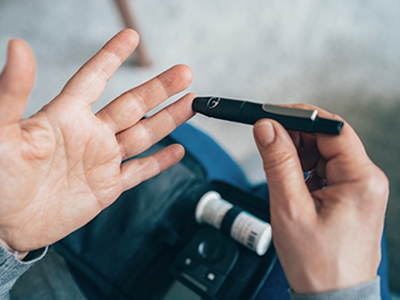
Peer leaders who participated in a year-long study maintained stable blood sugar levels and experienced mental health benefits.
Researchers have discovered that a peer-to-peer diabetes mentorship program yielded positive health outcomes for peer leaders. Published in the Canadian Journal of Diabetes, the first North American study of its kind provides a compelling case for further integration of relatively low-cost peer support into diabetes care.
“Prior research has largely examined the impact of peer support for individuals who receive rather than deliver support,” says senior author and Vancouver Coastal Health Research Institute researcher Dr. Tricia Tang.
“Our mixed methods study is the first to report qualitative and quantitative findings on peer leaders of a peer support program for people with type 2 diabetes.”
Type 2 diabetes is a progressive disease caused by the accumulation of sugar on a protein in red blood cells called hemoglobin. Clinicians test for diabetes using a simple A1C blood test, which measures the percentage of red blood cells with too much sugar on their hemoglobin.
Percentages below 5.7 are considered normal, while people with 5.7-6.4 per cent have pre-diabetes and people with 6.5 per cent blood sugar and higher are diagnosed with diabetes.

The study involved 52 volunteer peer leaders aged 21 years or older with either type 1 or 2 diabetes and a self-reported A1C of eight per cent or less. Peers received 30 hours of training, based on Tang and colleagues’ Peer-Led, Empowerment-based Approach to Self-management Efforts in Diabetes (PLEASED) training program.

Peer leaders were matched with participants with type 2 diabetes. Leaders and participants met face-to-face for the first session and then weekly or bi-weekly over the phone for a year.
Peer leaders were encouraged to follow a general structure during their calls with participants that included discussing self-management challenges, questions and goals, along with problem-solving and sharing feelings.
Peer support leaders opened a window to better management of diabetes
Researchers tested peer leaders’ A1C, blood pressure, body mass index, waist circumference, diabetes distress and depressive symptoms at the start of the study, and then three and 12 months after.
At the 12-month mark, researchers found the clinical and mental health measures that were in target range at baseline remained in target range, including peer leaders’ A1C percentage.
“This finding is quite significant,” notes study co-author Dr. Rowshanak Afshar. “Because diabetes is a progressive disease, A1C levels often increase by approximately 0.2 per cent per year on average.”
“A sustained A1C over a 12-month period can be considered a favourable outcome.”
Peer leaders shared with the research team that the experience opened their eyes to the potential consequences of poorly controlled diabetes and the potential benefits of proper diabetes self-management. It also helped them expand their diabetes knowledge and management skills.

“With so much available information about how to treat and manage diabetes today, people living with diabetes can be overwhelmed with the mental burden of this process-demanding condition,” notes Afshar. “They need to take their medications at a certain time and amount, follow a specific diet, exercise regularly, etc.”
“Peer leaders and participants can exchange tips and share personal experiences about living with the condition.”
One peer leader mentioned to the research team that he was able to “clean up his own life in the process of helping somebody else.”
While results from the peer support program are promising, Afshar says that more research is needed to highlight its potential cost savings and show how it can be integrated into other care settings.
“Maintaining the benefits shown in this study could require the integration of an ongoing peer support program into hospital or community care centres in order to make the program more accessible to people living with diabetes.”


